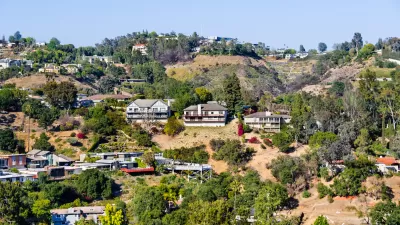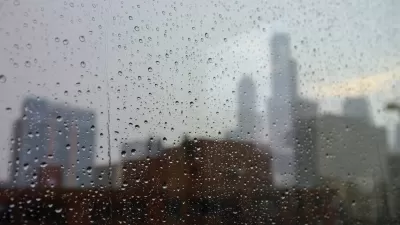American reliance on property taxes leads to NIMBYism and periodic tax revolts, thus impeding both development and basic public services.
A recent article in the Economist suggests that property taxes are more pro-growth than other taxes, because property taxes are more stable than other sources of revenue. Even assuming this is the case, property taxes have a variety of negative side effects that the article fails to consider.
Property taxes promote NIMBY (Not In My Back Yard) resistance to new housing. If a housing development is unusually affordable, the housing will produce less property tax revenue than the rest of the housing stock. Thus, the housing will (compared to more expensive housing) reduce the municipal tax base- which means higher taxes or fewer services for existing taxpayers. In such a situation, the municipality's residents have an excellent reason to oppose the development..
But what if a proposed housing development is more expensive than nearby housing? The new development may make all of the city or neighborhood's housing more valuable, thus causing the municipality to force everyone to pay more taxes. Such a revaluation may be good news for neighbors who wish to sell out- but bad news for other neighbors who will have to pay higher taxes to stay in their homes. Thus, neighbors may rationally oppose the expensive housing as well, fearing that the new housing will cause them to be forced out of their homes by higher property taxes.
It follows that municipal reliance on property taxes leads to high levels of NIMBYism, which means less housing would get built than would otherwise be the case, which in turn leads to out-of-control housing prices.
In addition, property taxes tend to be extremely unpopular because they are often assessed in a lump sum (as the Economist article admits). So a city dependent on property taxes is likely to have its revenues periodically reduced by tax revolts. State-level politicians in particular have an incentive to buy votes by promising to reduce local property taxes, because if a city is forced to reduce services as a result, mayors rather than governors will suffer at the polls. Is this a good thing? I think not, because when one level of government makes decisions that another level can be blamed for, the public accountability that democracy rests upon is eroded. Moreover, the public services provided by municipalities include the most obviously "basic" such as fire and police- so when state government tampers with municipal services, it tampers with public order.

Manufactured Crisis: Losing the Nation’s Largest Source of Unsubsidized Affordable Housing
Manufactured housing communities have long been an affordable housing option for millions of people living in the U.S., but that affordability is disappearing rapidly. How did we get here?

Americans May Be Stuck — But Why?
Americans are moving a lot less than they once did, and that is a problem. While Yoni Applebaum, in his highly-publicized article Stuck, gets the reasons badly wrong, it's still important to ask: why are we moving so much less than before?

Using Old Oil and Gas Wells for Green Energy Storage
Penn State researchers have found that repurposing abandoned oil and gas wells for geothermal-assisted compressed-air energy storage can boost efficiency, reduce environmental risks, and support clean energy and job transitions.

Greening Oakland’s School Grounds
With help from community partners like the Trust for Public Land, Oakland Unified School District is turning barren, asphalt-covered schoolyards into vibrant, green spaces that support outdoor learning, play, and student well-being.

California Governor Suspends CEQA Reviews for Utilities in Fire Areas
Utility restoration efforts in areas affected by the January wildfires in Los Angeles will be exempt from environmental regulations to speed up the rebuilding of essential infrastructure.

Native American Communities Prepare to Lead on Environmental Stewardship
In the face of federal threats to public lands and conservation efforts, indigenous groups continue to model nature-centered conservation efforts.
Urban Design for Planners 1: Software Tools
This six-course series explores essential urban design concepts using open source software and equips planners with the tools they need to participate fully in the urban design process.
Planning for Universal Design
Learn the tools for implementing Universal Design in planning regulations.
Heyer Gruel & Associates PA
City of Moreno Valley
Institute for Housing and Urban Development Studies (IHS)
City of Grandview
Harvard GSD Executive Education
Salt Lake City
NYU Wagner Graduate School of Public Service
City of Cambridge, Maryland






























